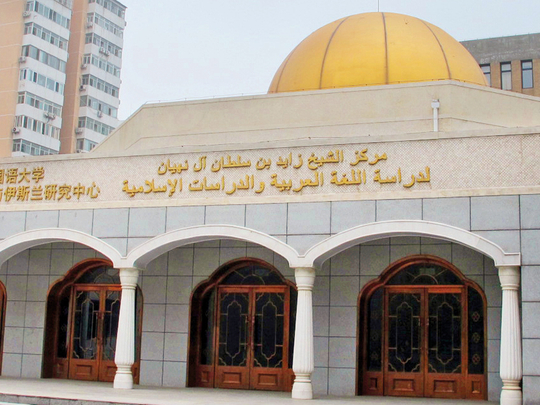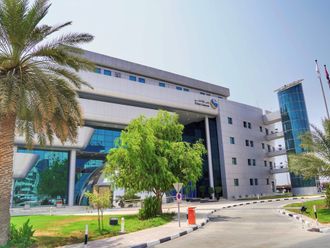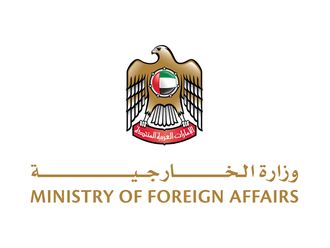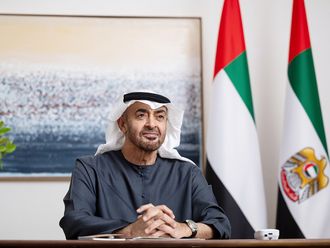
Beijing: Learning Arabic is very important to many Chinese not just because of the Muslim community in the country, but also because of the growing relations between the Arab countries and China, Chinese academics said.
Growing economic and commercial ties between China on one side, and UAE and the rest of the Arab region on the other, makes Arabic a plus in applying for jobs in Arab countries.
“When I was a student, there were seven or eight Chinese universities teaching Arabic. Today there are nearly 50 universities teaching Arabic,” said the 37-year-old professor, who was given the name of “Shadi” in Arabic.
Commenting on the interest in Arabic, Xinlu said, “In China, as we know, there are more than 10 demographics, and more than 20 million people are Muslims. We believe the Arabic language is very important to them, but this is not the main reason to study Arabic,” he told Gulf News in an interview recently.
- Xue Guoqing (right) | Director of Shaikh Zayed Centre in Beijing
“There is a much more important reason, which is the relations between China and the Arab countries, especially in the commercial field. Many people find commercial, cultural and political opportunities to deal with the Arab countries,” he said.
China is UAE’s trade partner, and the Gulf state is among the top partners for China.
The faculty of Arabic studies at the university will celebrate its 60th anniversary next September, and it is considered the “oldest and the best school in China in teaching Arabic,” said Lateef, a Chinese PhD student who was given an Arabic name after enrolling in the faculty. He is studying Arabic because “it is a lovely language … Since my childhood, I have a dream of travelling and visiting the Arab countries. The language is my key.”
Lateef is currently studying Arabic at the Shaikh Zayed Bin Sultan Al Nahyan Centre for Arabic Language and Islamic Studies, which was opened in 1994 on the orders of Shaikh Zayed after his historic visit to China in 1990. It is one of the faculty’s prominent centres and was renovated and reopened in 2012 on the orders of His Highness Shaikh Mohammad Bin Zayed Al Nahyan, Crown Prince of Abu Dhabi and Deputy Supreme Commander of the UAE Armed Forces in 2009.
“We give students Arabic names to create an Arabic atmosphere in class,” commented Xue Guoqing, Director of the Shaikh Zayed Centre, who is known as Dr. Bassam.
Nearly 1,000 people have graduated from the centre and they are using the Arabic language in their fields and specialisation, “whether being in the foreign ministry, trade and commerce, culture and commercial and media companies,” Professor Guoqing told a group of visiting journalists from UAE recently.
The 17 professors who teach Arabic include 15 Chinese and 2 Arabs, he said.
“Almost 98 per cent of our graduates find jobs after graduation,” said Guoqing.
About the Chinese interest in studying Arabic, Prof. Guoqing said, “Some because of their love for Islamic culture, and some because they envision the Arab world is full of legends after being influenced by ‘One Thousand and One Nights’ tales, and some because of the employment opportunities it will provide.”
According to Prof. Guoqing, two-thirds of the Chinese diplomats in the Arab region graduated from the faculty. He said most of the Chinese diplomats serving in the Arab reigon speak Arabic.
Guoqing himself has helped spread the Arab culture and literature in China by translating works of some of the prominent names in modern Arab poetry, including Ali Ahmad Said Esber, known as Adunis, Mahmoud Darweesh, Badr Shaker Al Sayab, and Abdul Wahab Al Bayati.
At the same time, he is collaborating with the Syrian scholar, Firas Sawah, who was until recently a member of the teaching faculty, in translating some of the famous Chinese books to Arabic. This includes ‘The Analects’, which is also known as the ‘Analects of Confucius’, a collection of sayings and ideas attributed to the Chinese philosopher Confucius.
“Personally, I started paying more attention to the (Islamic) thought studies. When the word Islam is mentioned, what comes to the Chinese minds is that Islam is a religion and a law. However, Islam is much more than that; it is a complete civilisation, including philosophy, history, law, social studies and inventions in all fields. It is a wider concept that just a religion”.
The Faculty of Arabic Studies has connections with many Arab universities, including the UAE University and Zayed University of UAE.
China, on the other hand, is paying more attention to teach Chinese abroad. By the end of 2016, there were 512 Confucius centres, and 1,073 classes in 140 locations around the world.
Xinlu said, “Language is an important element in the soft power. When I visited many Arab countries, I found very few books in Chinese. Likewise, you will find few Arabic books in China. There is a need to put more effort into translating more books, on both two sides.”












